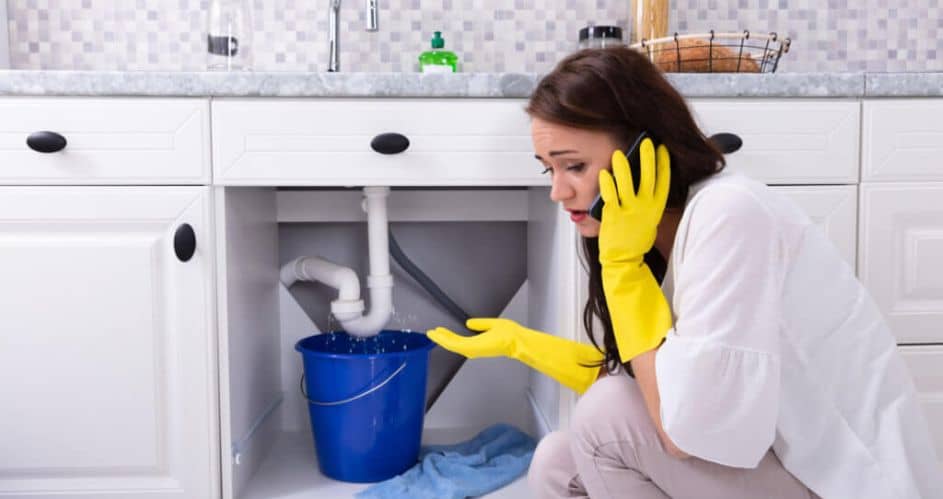
There may be times when plumbing problems require immediate attention, like when a major leak needs fixing quickly to avoid expensive water damage. In these instances, plumbing emergency response must take immediate effect to prevent further complications.
Learn to identify true emergencies versus problems that can wait until normal business hours.
If you need help with your kitchen’s plumbing system, you can visit this page to contact plumbing contractors specializing in kitchen plumbing.
Handling Kitchen Plumbing Emergencies: Pre-Professional Steps
Clogged Drains
Drains in homes receive heavy use, processing everything from food scraps to paper towels. Over time, however, they may begin to slow or stop working entirely, leading to an emergency clog situation that requires immediate action.
Once your clog becomes severe enough to interfere with daily use, it’s time to contact a plumber. A blocked drain in a key location, such as your kitchen sink or guest bathroom, could disrupt daily activities and result in costly water damage – not something anyone wants!
But if your drains aren’t completely blocked, it may be prudent to attempt clearing it yourself before calling a professional.
Many DIY websites provide steps for clearing minor clogs using items already present in your home – such as baking soda and vinegar or even just using a plunger– though if these methods fail, it may be time to call a plumbing pro for help.
Clogged Toilets
Clogged toilets may be caused by items that should not be flushed (e.g., disinfecting wipes) or by excessive paper waste. To address the problem effectively, switch off your water source by turning the knob or handle on your tank clockwise.
Once the water has been turned off, use a plunger on your toilet to try to unclog it yourself. If this fails to do the trick, call in professional services for help immediately.
Note that when wastewater backs up into your tub or shower, it should be considered an urgent situation and addressed immediately. This indicates a major blockage that affects all aspects of your plumbing system and could require professional intervention to remedy.
Wastewater poses serious health hazards if left unattended; erring on the side of caution is wise.
Leaking Pipes
Leakage from pipes should be treated as a plumbing emergency and addressed as soon as possible to minimize further damage to both other areas of your home and mold growth, both of which pose potential health hazards to you and your family.
If you detect a leak underneath your sink, it’s wise to shut off your water source immediately in order to reduce pressure in your system and give yourself time to investigate and address any potential problems.
Next, clearing away any items beneath your sink is essential to give yourself enough room. Also, be sure to have some tools handy such as a flashlight, bucket, and towels ready.
Most leaks under your sink are typically due to loose pipes, rubber washers, or fittings; these issues can often be easily remedied using epoxy putty or sleeve clamps to temporarily seal off leaky areas until you contact a professional plumber for a more permanent fix.
Frozen Pipes
Icy, snowy conditions in Illinois make frozen pipes a common issue. Frozen pipes can lead to serious water damage if left unattended.
Instead of calling in professionals immediately, consider some home remedies first – for instance, identify any exposed pipes near exterior walls or unheated areas that might be at risk of freezing before taking further action.
If you find a frozen pipe, turn off the main water supply valve before opening faucets and tub spouts throughout your house to drain any remaining water out of the system and locate any potential burst pipes.
Once the water has been turned off and all excess water drained away from the system, apply heat directly to the frozen section of the pipe by using either a hair dryer, electric heating pad, portable space heater (keeping at least three feet from any combustible materials), or wrapping the pipe with warm towels.
